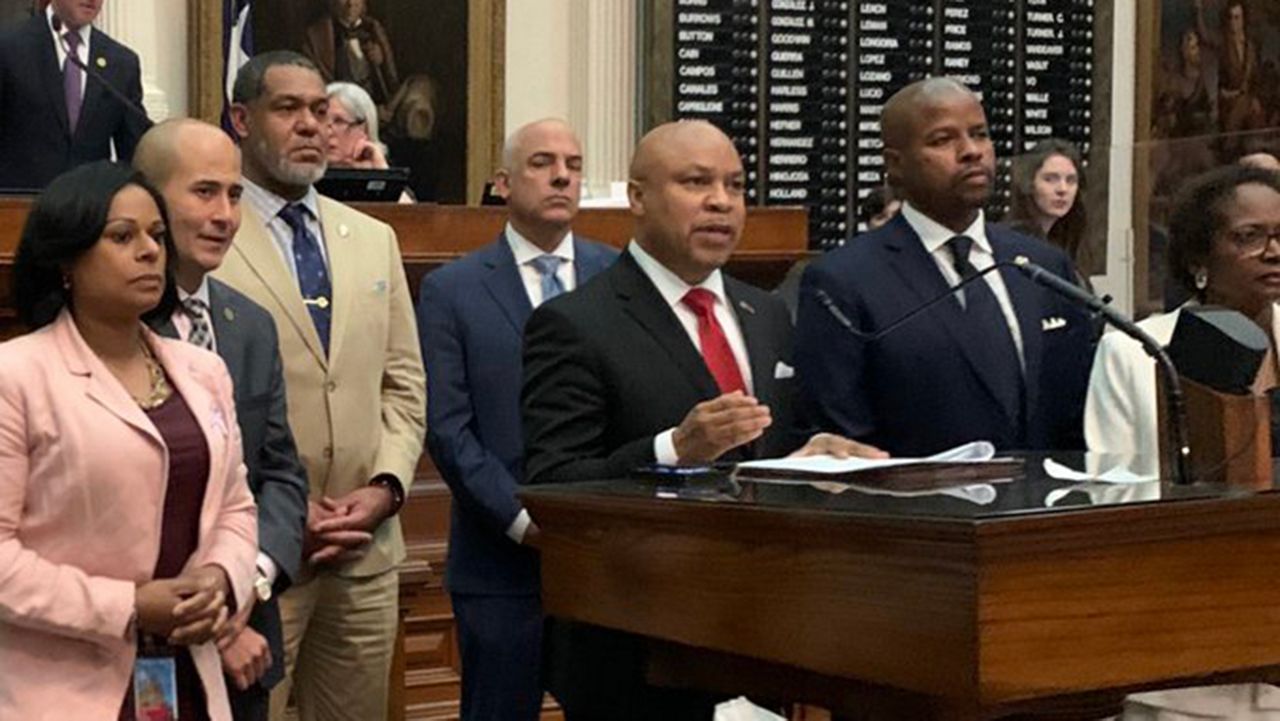AUSTIN, Texas — The Botham Jean Act, formally known as HB 929, heads to the Texas Senate after the House passed it on its third reading Friday afternoon.
The bill passed with 108 in favor and 34 against, garnering 10 more votes compared to Thursday night’s second reading of the bill.
Bo’s Law Safe at Home, authored by Rep. Carl Sherman of District 109, aims to clarify policies and procedures related to body-worn cameras by members of law enforcement.
The bill’s namesake, Botham Jean, was shot and killed by then Dallas Police Department Officer Amber Guyger, who claimed she mistakenly shot him believing he was an intruder in her own apartment. Guyger lived a floor below 26-year-old Jean in the South Side Flats.
“Because of each and every one of you — I am proud to announce that HB 929, The Botham Jean Act 'Bo’s Law' passed the Texas House on its second reading,” said Sherman, taking to Twitter to share the news. “Thank you to the Jean family, Dallas area preachers and Church Leaders Campaign for Christ, Texas Legislative Black Caucus, Mexican American Legislative Caucus of the Texas House of Representatives, Speaker Dade Phelan, Rep. Jacey Jetton and Rep. Ron Reynolds — and all who support HB 929 'Bo’s Law.'"
As legislators rushed to get bills passed before the midnight deadline on Thursday, some took the floor to address concerns. Following Sherman’s reading of HB 929, Rep. Tony Tinderholt of District 34 stepped to the podium to ask about putting an amendment in the bill that would allow officers to turn off their body cameras once they entered a "secure area."
“My concern is that it opens it up to a lot of liability, because we don’t know when an investigation starts and when it ends on every single investigation and so it could open it up to a lot of liability and I’m just trying to save a lot of litigation,” he said.
During the night of the deadly shooting, Dallas Police Department Sgt. Mike Mata instructed another officer to turn off the dash cam to the patrol car Guyger was sitting in. In a later interview with media outlets, Mata alleged he made the request since she was receiving a call from her attorney thus making it attorney-client privilege. The evidence loss as a result led Sherman and others to push for more accountability within law enforcement organizations across the state. Rep. Ann Johnson of District 134, and a former chief human trafficking prosecutor for Harris County, spoke in favor of the bill’s intent.
“When I get a body cam video, it might have hours on it and that’s a good thing because those hours of body cam video give us the chance to not only protect the accused, but also to protect law enforcement, that when they have done it right they have got that body cam there.”
Rep. Matt Schaefer of District 6, who voted against the bill, said the language in the bill created a “duty upon officers that is open-ended.”
“My concern with this bill has to do with the broad definition of investigation,” he said. “You ask our officers every day to put on their uniform and go out. Can you tell me when an active investigation has begun and when it has ended? If you can’t by reading this bill, then an officer on the street can’t understand it either. This does not provide our officers with the kind of clarity and simplicity in the law that we expect that creates a legal liability for them.”
To find common ground with law enforcement organizations who expressed concern with the bill’s initial language, Sherman worked with other legislators and members of agencies to craft a bill with a purpose toward strengthening policies.
“Certainly, it was important that we have the Texas Association of Sheriffs actually draft this piece of legislation with us,” Sherman said. “It’s important that we create systemic accountability in policing. I received a call from one of my cities in my district where a police officer just shot an individual and it is because of the body cam and the policies that they have that that police officer’s job will be protected.”



